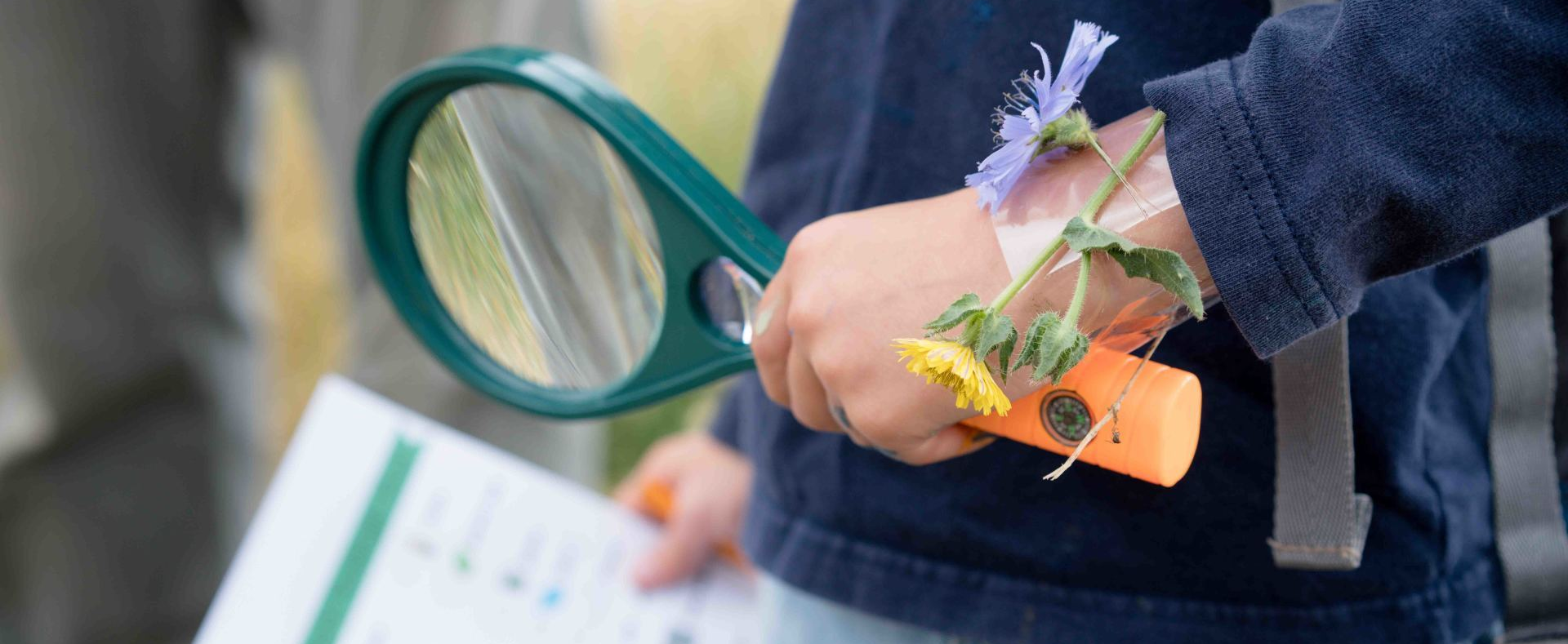How To Keep Your Children Active During The Lockdown
ADvTECH Group • April 17, 2020
Fun Lockdown Activities To Keep Kids Busy at Home

With the lockdown extension, you might be looking for fresh new ways to keep your kids active and entertained. It’s understandable for everyone to become a little more sluggish during lockdown. It’s extra important for children to stay mentally and physically sharp - for both their mental health and yours. Here are some fun things to do with kids at home.
1.Keeping toddlers busy
Parents of young children or toddlers have had to put in extra efforts to keep their growing kids busy during lockdown. If you’ve exhausted your list of games, crafts or lessons, give these kids activities a try:
2.Mess-free painting
Babies and toddlers will enjoy this sensory experience. So will you, as there isn’t any extra clean-up.
● Add dollops of paint to a sheet of card and slip the card into a Ziploc bag. Seal the bag and let your child use the outer plastic to move and manipulate the paint onto the white card.
3.Easy at-home stamps
● Empty toilet rolls can be used to create heart, oval and circular stamps. Bend the tube to get your desired shape, dip into paint and stamp away.
4.Kids’ activities for older children
If your child is a little older, they’ll have extra energy to exert. Don’t let the days be spent solely behind screens. Physical activities are critical for their mental and physical wellbeing.
● Create a garden scavenger hunt. A simple Google search will yield plenty of printable clues and answers. This will have your kids running around the yard in no time.
● With access to the Internet, it’s also easy to find YouTube dance videos or Yoga classes for kids. These videos have been designed to keep kids engaged in fun, physical movement.
● Take your kids on a garden safari. Encourage your children to reinvestigate the garden by spotting as many bugs or creatures as possible. They can be awarded points for spotting different insects and plants. They could even sketch or document their findings in a notebook. This should keep them occupied outside in the fresh air for a couple of hours.
4.Keeping teens busy during Lock Down
Your teen will probably have a fair amount of school work to keep up with. They also might be the hardest hit emotionally and mentally with the home confinements. When it comes to teens, there are a few different ways you can engage with them in order to make sure they aren’t slipping into a routine of laziness or depression.
● Structure. Develop a daily routine for them and try to stick to it. Assign certain hours for schoolwork, chores, TV and sleep in order to emulate the structure they would normally experience during a school week. This leaves less time for apathy or negative mental talk.
● Up their responsibilities. By creating an atmosphere of “we’re all in this together”, you can help your teen take more responsibility with helping out around the house. By assisting with more chores, they’ll be more physically active
and engaged.
Lockdown in the time of Covid-19 is a strange and uncertain time for all families. Together, families can help each other navigate through the “new normal” while maintaining good habits and a bit of structure.
Add your custom HTML here

By Laura Barrett, Intern Counselling Psychologist at Trinityhouse Glenvista Each year on 10 October , the world pauses to recognise World Mental Health Day, a reminder that mental well-being is not just an individual concern, but a shared responsibility among families, schools, and communities. As an Educational Psychologist working closely with children and families, I have seen first-hand how early conversations about mental health can change the course of a young person’s life. When emotional well-being is acknowledged and nurtured from a young age, children are better equipped to handle life’s challenges with confidence and resilience. Why conversations about mental health matter? Mental health is not a “grown-up” topic, it’s a human one. If children are not taught about emotions and coping mechanisms early on, they may grow into adults who struggle to manage stress, relationships, or change. Talking openly about feelings, naming emotions, and learning healthy coping strategies are all part of developing emotional literacy. These are the tools that help children and adults stay grounded through the ups and downs of life. At Trinityhouse, together with the world earlier this year, we explored the WRAP framework: Wellness, Resilience, Action and Purpose, a simple yet powerful approach to supporting children’s mental well-being. Each pillar plays a role in creating emotional stability and balance, not only for children but also for the families guiding them. Wellness begins with the basics. Adequate sleep, good nutrition, hydration, and rest may sound simple, but they lay the foundation for emotional regulation. A well-rested, nourished child is far more likely to cope effectively with daily stressors. Being mindful of mental health also involves small, practical steps like taking a few deep breaths before a stressful test or stretching during homework breaks. For adults, this might mean pausing for a cup of tea, taking a short walk, or simply naming what you’re feeling in the moment. Labelling emotions (“I feel anxious about this meeting”) helps calm the mind and re-engage rational thinking. Resilience isn’t about “always being strong.” It’s about learning to recover and grow after setbacks. Parents and teachers can nurture resilience by giving children space to express their struggles without judgement, then helping them explore possible solutions. When a child faces disappointment, a poor test result or a conflict with a friend, remind them of times they’ve overcome challenges before. Ask: “What helped you last time?” This reflective process empowers children to see themselves as capable problem-solvers, rather than passive victims of circumstance. Positive mental health requires active engagement, not just awareness. For families, this can mean creating calm, structured environments where children feel safe and heard. The Positive Parenting framework offers five helpful practices to support this: Empathy : Validate your child’s emotions instead of dismissing them. “I can see you’re upset about your toy” goes further than “Don’t cry, it’s not a big deal.” Positive Reinforcement : Celebrate effort and progress, no matter how small. A star chart or extra family time can be simple yet powerful motivators. Consistent Boundaries : Predictable routines and clear consequences make children feel secure. Boundaries should be calm, firm, and fair. Open Communication : Create family moments for honest sharing. Ask, “What was the best part of your day?” and really listen to the answer. Co-regulation : Young children often mirror their parents’ emotions. When you model calmness through deep breathing or gentle reassurance you teach them to regulate their own feelings. A sense of purpose is vital for both adults and children. It gives meaning to our actions and connects us to something larger than ourselves. Encourage children to explore hobbies and interests that bring them joy and fulfilment, whether it’s art, sport, volunteering, or spending time outdoors. These pursuits help build identity, confidence, and belonging. For parents, purpose can come from nurturing both their children’s and their own mental health. The saying “You cannot pour from an empty cup” is particularly true here. When parents take care of themselves, physically, mentally, and emotionally, they model balance and self-respect for their children. Recognising when a child is struggling Even with the best support, children can experience emotional challenges. Warning signs may include withdrawal from friends, sudden changes in sleep or appetite, irritability, or declining motivation. These can indicate stress, anxiety, or burnout. If you notice these signs, open a gentle conversation: “I’ve noticed you haven’t seemed yourself lately. Would you like to talk about it?” Sometimes, simply being heard is the first step toward healing. Continuing the conversation The most inspiring shift in recent years is how openly young people now speak about mental health. Many no longer see anxiety, sadness, or stress as weaknesses but as part of the human experience. This honesty offers hope for a more empathetic, emotionally literate generation. On this World Mental Health Day , let’s extend that conversation beyond schools and into our homes. Let’s practise a WRAP culture together by building Wellness, Resilience, Action and Purpose not only in our children’s lives but in our own. At Trinityhouse , we believe education extends beyond academics, it’s about nurturing the heart and mind. By fostering open dialogue, emotional awareness, and resilience, we aim to create an environment where every child feels seen, supported, and empowered to thrive. When families make mental health a daily priority, we don’t just raise stronger children, we raise a kinder, calmer and more connected generation.

One of the most significant academic decisions your child will make in their school career is which subjects to select. For many South African families, it can feel like a daunting task filled with pressure, uncertainty, and long-term consequences. But with the right support, tools, and guidance, parents can help their children make well-informed decisions that set them up for future success, both academically and professionally. The foundation of good subject choices lies in understanding your child’s academic ability and current performance. Subjects like Mathematics, Physical Sciences, and Accounting require solid results in Grade 9 and a strong grasp of key concepts. Similarly, subjects like Engineering Graphics & Design (EGD) or Visual Arts cater to students with practical and creative aptitudes. Consider your child’s learning style: do they prefer theory, or do they thrive with hands-on learning? Although, it is normal to want what’s best for your child’s future, you should not force them to live up to your ideal of success. Rather initiate conversations about possible careers or areas of interest and explore how different subjects align with those pathways. Platforms like YENZA Careers are incredibly helpful in this regard. YENZA uses psychometric assessments to offer realistic subject recommendations based on your child’s strengths, interests, and potential career matches, and it gives parents access to the results too. “Choosing the right subjects is a balance of academic ability, interest, and long-term thinking,” says Sumari Purdon , Head of Academics for Trinityhouse Schools. “We encourage families to use this opportunity to start meaningful conversations about the future, with support from tools like YENZA and input from educators who know the student well.”












